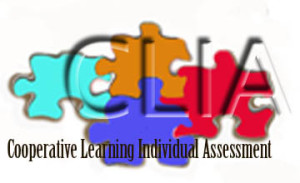The purpose of this topic is to provide access to data points you think might be useful for your committee and student colleagues to consider. The most effective data points are those which are light on scholarly rhetoric and heavy on metaphoric connections which will help explain your point of view to your intended audience.
______________________________________________________________________________
Alex Hines contributes PP on Race Equality/Equity What’s Race Got to Do With It MnNAME 2013
AND 2016 HOPE Diversity Culture Race Racism -Hines
______________________________________________________________________
Micro Aggression reports from the street: https://www.buzzfeed.com/hnigatu/racial-microagressions-you-hear-on-a-daily-basis?utm_term=.jorKjLmz89#.pjvNpQe0rz
Other video resources recommended by Dr. Hines:
https://www.youtube.com/watch?v=EMHcEojdjEs
https://www.youtube.com/watch?v=DYCz1ppTjiM
https://www.youtube.com/watch?v=D9Ihs241zeg
https://www.youtube.com/watch?v=8KYJl0PECv8
https://www.youtube.com/watch?v=36XCiGr8muw
https://www.youtube.com/watch?v=4SVGwlmBtcs
https://www.youtube.com/watch?v=FSdKy2q6pEY
https://www.youtube.com/watch?v=ofB_t1oTYhI
________________________________________________________________________
Persistence and Grit are the Markers for Success- Not Scholarship https://www.youtube.com/watch?v=qaeFnxSfSC4
_________________________________________________________________________________
 FREE cooperative learning assessment software: http://www.goclia.com/
FREE cooperative learning assessment software: http://www.goclia.com/
Cooperative Learning and Individual Assessment (CLIA), designed by Dr. Bridges, provides the accountability currently missing in the assessment of group work. This assessment tool provides the opportunity for the teacher to simply drop their class list into the software and students to be held accountable as they learn the real life skills necessary to work successfully in a group. The students will come to consensus, enjoy anonymous team member assessment on five different benchmarks and emerge without the group members experiencing ongoing social stress.
_________________________________________________________________________________
Cultural Inclusion Training Model
_____________________________________________________________________________
The Trans students created social practice art. The use of the flag was very polarizing which brought attention to their issue but may have allowed their message to be hijacked because of the perception of the general public regarding desecration of the flag. A valuable discussion would focus on how the students could have used all the same strategies and achieved their intended goal. Using the Flag in Artworks.
http://www.artnews.com/2014/04/07/art-of-social-practice-is-changing-the-world-one-row-house-at-a-time/
Thoughts from Diane Land Ethic Project Ready To Lead Training Program

Click here to review two social practice projects of mine using art to provoke social dialogue on Feminist History and Water Quality: Using Art To Change The World
____________________________________________________________________________________
April 19th Winona Conversations! Click Here.
Collaborative Leadership Fellows:
Collaborative Leadership Fellows (CLF) Program
“The future vitality of our community will be increasingly dependent on the quality of relationships that exists among our citizens. CLF provides a uniquely safe and energizing experience that will allow you to better understand yourself, your community, the perspectives of others from different community sectors, and the ways in which you can serve as a catalyst for community engagement and social change for the greater good.” — Jenny Hegland, Participant, 2008 CLF Cohort
This is a unique, community-based leadership development program focused on a specific collaborative skill set, multi-sector networking, and learning applied to complex community issues.
CLF was founded in 2007 by the Family Action Collaborative (FACES) in Olmsted County. The Program was designed for the Olmsted County community by key stakeholders from local government, the funding community, higher education, K-12, business, and non-profit organizations.
CLF Goals
- Strengthen community capacity for collaborative leadership, and
- Ensure succession of community leadership invested in multi-sector solutions to complex community issues.
CLF Outcomes
- Understand complex community issues and collaborative solutions.
- Develop working relationships based on trust and respect
- Build and enhance networks in multiple sectors of the community.
Six Practices of Collaborative Leaders
- Assessing the Environment
- Creating Clarity
- Building Trust and Safety
- Sharing Power and Influence
- Developing People
- Self-Reflection
Four Stages of Collaboration
Stage 1: Envision Results by Working Individual-to-Individual
Stage 2: Empower Ourselves by Working Individual-to-Organization
Stage 3: Ensure Success by Working Organization-to-Organization
Stage 4: Endow Continuity by Working Collaboration-to-Community